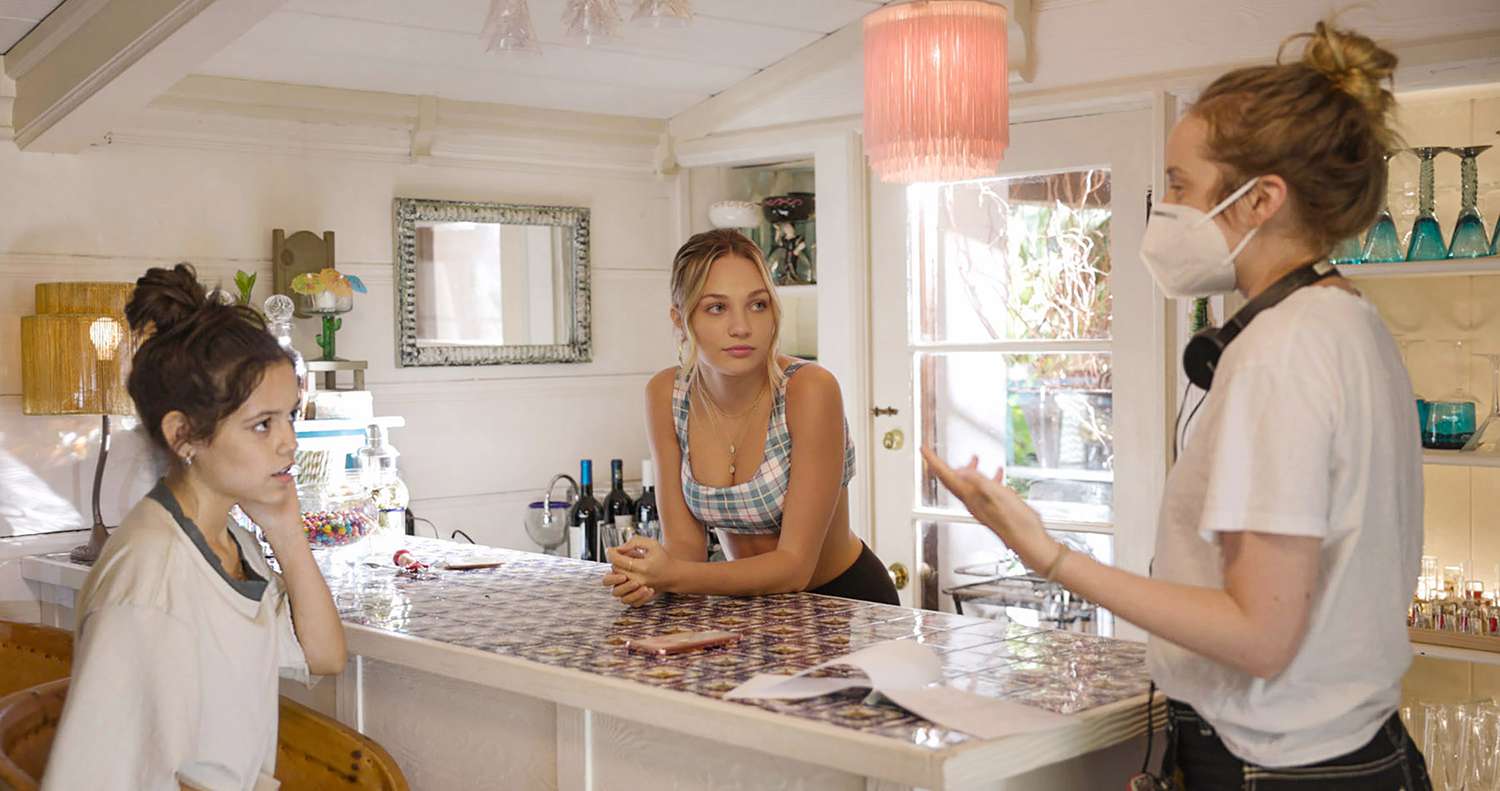School shootings have become an unfortunately common and tragic reality in the United States. As art imitates life, the subject has been brought to film several times but it’s been mostly documentaries (Bowling for Columbine) or used as the catastrophic event in psychological dramas (We Need to Talk About Kevin). Knowing the well-traveled road laid before it, The Fallout narrows its view to take a necessary look at the emotional trauma that’s left in the wake of these incidents and what recovery looks likes.
When an active shooter shows up on campus, a trio of high school students takes shelter in the bathroom and have their lives changed forever. The incident bonds them in tragedy and, as the days after the shooting begin to add up, the three of them struggle to connect with those outside their small circle.
The was a very ambitious debut feature film for Megan Park. It is not just that she took on a very difficult subject, it’s that she explored an area of the conversation that seems to have gone overlooked in the other films that have dealt with school shootings. This story really isn’t even about the incident, which is why that takes place within the first few minutes of the film. Instead, it’s about what happens to the survivors who are left to navigate a pool of emotional trauma and what that looks like for young people who still have a lot of life in front of them. In many ways, it’s a coming-of-age story told in the wake of that traumatic event.

Park’s screenplay braved some untested territory as it weaved humor into some very delicate subject matter, but it worked well and some of the dialogue in the film was actually hilarious. You would think it might come with a trade-off but Park still treated the story with reverence and the choice to incorporate that humor allowed her characters to experience the tragedy while also attempting to process it in a way that works for them. Their grief isn’t singular or linear. It’s messy and complicated and finding a space to laugh, despite the overwhelming magnitude, was something I greatly appreciated in the storytelling.

Jenna Ortega had already made a name for herself on the Disney channel’s Stuck in the Middle and on Netflix’s The Baby Sitter: Killer Queen and season two of You. However, this is the kind of breakthrough performance that is going to elevate her to another level. Even though she’s still playing a teenager, this was very much a young-adult role and she plays Vada with accessibility for both sides of that coin as the audience goes through the recovery process with her. She displays both fragility and resilience in good balance and it’s easy to see that she’s going to be a star.

Her primary opposite number is Maddy Ziegler in the role of Mia. She has an extensive dance background that we saw in West Side Story and it makes a small cameo in this movie but it’s more tied to her character projecting popularity while internalizing this consuming loneliness. Ziegler nails the dichotomy. Most of this story takes place away from the school and watching Mia and Vada find their friendship is the core of the film.
The third part of the group is Niles Fitch who plays Quinton. He is the one who is most directly impacted by the shooting but still manages to be the most well-adjusted of the three. We’ve seen Fitch hold it down for years on This Is Us as teenage Randall and he brings that emotional experience to the table here. I would have liked more of him in this role but I am looking forward to seeing his career play out.
Outside of those three, the rest of the cast really excellent as well. You’ve got important anchoring roles from Julie Bowen and John Ortiz, who play Vada’s parents, and Shailene Woodley who has a small role as Vada’s therapist. Their veteran performances go a long way in telling this story but the two supporting roles that really stood out belong to Lumi Pollack and Will Ropp.

Pollack plays Vada’s younger sister Amelia who can’t quite understand what’s wrong with her big sister and she just tugs at your heartstrings in all the right places. Ropp plays Vada’s best friend who becomes the face of the student movement after the tragedy as their friendship is strained. Beyond the strength of their portrayals, the characters help illustrate some of the ways these kinds of tragedies affect everyone involved.

There are strong Euphoria vibes with this film, both stylistically and setting-wise, but more toned down when it comes to the drugs and sex. Kristen Correll also did some interesting things with the cinematography, utilizing a lot of overhead shots to cultivate a sort of out-of-body-experience. The trailer was interesting enough to spark my curiosity but the final product is more than the sum of its parts and I was very impressed with what I got from this film.
Recommendation: See it for its approach to the subject matter and the excellent performances that sustain it.
Thanks for reading! I still believe word of mouth is the best way to help, so if you enjoy what I’m doing, please tell somebody. Liking, subscribing, and sharing go a long way too. As usual, be well, be safe, and have fun no matter how you get your movies!
